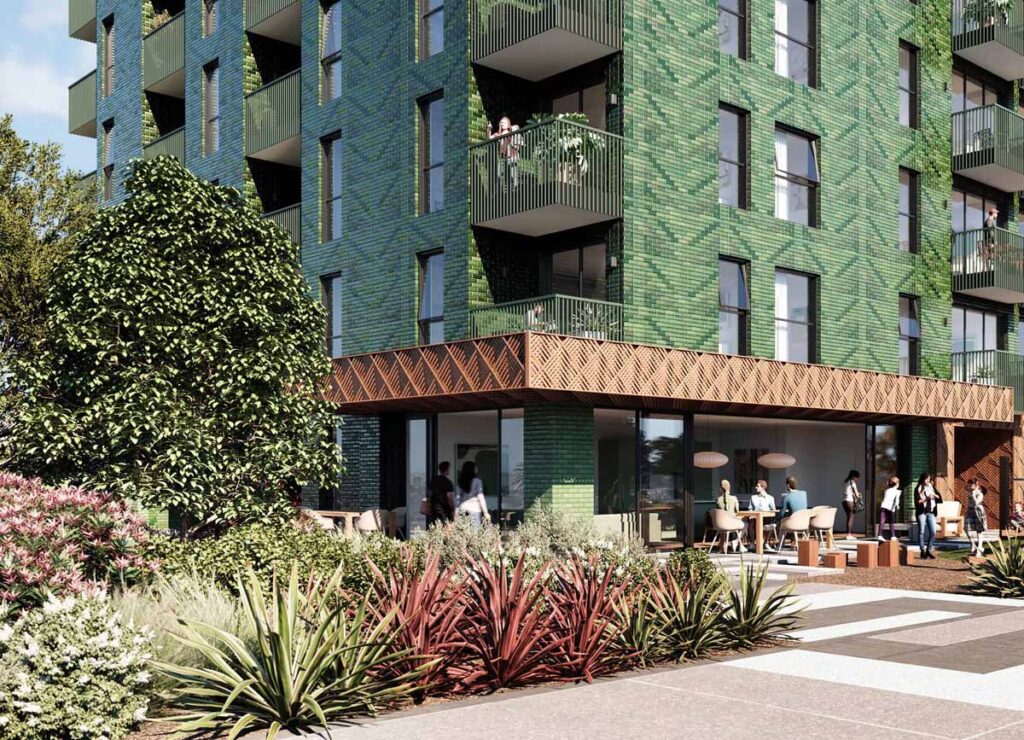
Are you thinking about investing in a residential rental property to grow your investment portfolio? Here comes the tricky part. Do you go for a brand-new build with that fresh paint smell? Or do you go for an older, character-filled home with history?
Real estate investing offers excitement and strong returns when you select the right path. Both options have their pros and cons, and the best choice depends on your goals, budget, and how hands-on you would like to be.
If you’re stuck in the “new vs. old” debate, don’t worry. We’ve got you. We’ll break down the advantages and disadvantages of each, covering everything from depreciation and rental income to maintenance and purchase costs. So let’s get straight into it.
Why Buy a New Investment Property?
Investing in a new home or apartment in New Zealand comes with plenty of financial perks and practical upsides that draw in lots of investors. You might be eyeing a slick new apartment in Auckland or a fresh house in a growing suburb. Here’s why you’d want to go for a new property and what makes it a solid choice:

1. Depreciation Benefits (Tax Advantages)
When you buy a new property in New Zealand, you can still enjoy tax benefits, even though depreciation rules have evolved. Since April 1, 2011, the Inland Revenue Department (IRD) has not allowed depreciation claims on residential buildings. However, you can still claim depreciation on chattels like stoves, carpets, blinds, and heat pumps. In a new property, these items are brand new and carry higher values, meaning you can claim larger deductions over time to lower your taxable income and keep more money in your pocket.
For example, a new apartment with modern appliances could yield thousands of dollars in annual depreciation claims, depending on what’s included. On the interest deductibility front, things have shifted recently. Previously, new builds bought after March 27, 2021, had an edge, allowing investors to deduct loan interest for 20 years while older properties didn’t get this benefit. But the new government has changed the game: interest deductibility is being phased back in for all properties. Starting April 1, 2024, you can claim 80% of your interest expenses, rising to 100% from April 1, 2025 for new and existing properties. This reduces the tax advantage new builds once had in terms of interest, though the higher depreciation on new chattels remains a perk.
- Pro tip: Tax rules are complex and constantly changing. Always check with your tax accountant to confirm the current rules and ensure you’re maximising your deductions based on your specific situation.
2. Higher Rental Appeal
Tenants love new properties, and you’ll see why. These places come with all the modern stuff people want, like open-plan layouts, energy-saving appliances, top-notch insulation (meeting Healthy Homes Standards), and even cool extras like smart locks or security systems. If you’re renting out a new place in a city like Wellington, where tenants care about staying warm and keeping power bills low, you could charge more than you would for an older, drafty house nearby. That’s a big deal in New Zealand’s rental market, where demand is high and tenants are picky.
You’ll find that new properties often pull in higher rents, especially in hot spots like Auckland, Christchurch, or Tauranga. The Real Estate Institute of New Zealand (REINZ) shows median rents climbing, and new builds tend to sit at the top end. That means more cash coming your way and a better return on what you’ve invested.
- Pro tip: You can dig into local rental trends using the Ministry of Business, Innovation and Employment (MBIE) tenancy bond data. It’ll show you what tenants want in your area so you pick the right place.
3. Lower Maintenance Costs
When you buy new, you don’t have to stress about fixing stuff all the time. Everything’s brand spanking new, from the roof to the pipes, so you’re not likely to get hit with repair bills right away. In New Zealand, new builds have to meet the Building Act 2004 standards, so you’re starting with quality. On top of that, most come with a 10-year building guarantee through the Licensed Building Practitioners scheme. If something structural goes wrong or the workmanship’s off, you’re covered, and it won’t cost you a dime.
Compare that to an older place. You might buy a house and find the roof leaks or the wiring’s shot within a year. With a new townhouse in Hamilton, you’re good to go, while a 1970s rental nearby might need work straight off the bat.
- Pro tip: You should always double-check the builder’s warranty and keep your compliance certificates handy. It’s your safety net.
4. More Choice and Customisation
You get way more options with a new property. Maybe you’re looking at a house-and-land package in a spot like Milldale in Auckland, or an off-the-plan apartment in Queenstown. Either way, you can often pick your layout, choose your finishes, and decide on colours before they even finish building. Many builders let you tweak things like kitchen counters, flooring, or bathroom tiles to suit you.
That flexibility means you end up with a place that tenants love and that fits your goals. You might want to max out rental income or target families or young professionals. With a new build, you can make it happen.
- Pro tip: You can swing by showhomes or check out the developer’s past projects to make sure their quality’s up to scratch before you sign on.
Why Buy an Established Property?
New properties are great, but you might lean toward an older home instead. Established properties, like a classic villa in Dunedin or a sturdy brick house in Palmerston North, have their own perks that plenty of investors love. Here’s why you’d pick one and what you’d gain:
1. You Can See What You’re Buying
When you buy an older home, you know exactly what you’re getting. You can walk inside, poke around, and see if it’s in good shape. You’ll get a feel for the neighbourhood too. That’s a big plus compared to new builds, especially off-the-plan ones, where you’re trusting the developer to deliver something you haven’t seen yet. If you’re checking out a place in Christchurch, you can test the heater, look for damp spots, or spot cracks yourself.
You don’t get that with a property still being built. It’s all about certainty with an established home.
- Pro tip: You should get a building inspector to give it a once-over. They’ll spot anything you might miss and save you headaches later.
2. Immediate Settlement and Rental Income
With an older property, you’re in business fast. You buy it, settle the deal, and tenants can move in right away. That’s huge if you’re in a growing area like Hamilton, where people are lining up for rentals. You could have cash flowing in within weeks. New builds, especially off-the-plan, might take a year or two to finish. That’s a long time to wait with no return while your money’s locked up.
Say you grab a three-bedroom place in Rotorua. You could have tenants signed up before the month’s out, unlike waiting for a new subdivision to wrap up.
- Pro tip: You can ask the seller or agent about the property’s rental history to see what it’s pulled in before.
3. No “New Build” Premium
New properties cost more because you’re paying for the builder’s profit, marketing, and that shiny new vibe. Older homes don’t have that markup, so you often get more bang for your buck. For example: a new three-bedroom house in Papamoa might set you back $950,000, but you could snag a similar older one nearby for $800,000. That $150,000 you save could go toward sprucing it up or into another investment.
You’re not shelling out extra just for “new.” It’s about value.
- Pro tip: You can use online resources to check prices in your area and make sure you’re not overpaying.
4. Established Neighbourhoods and Infrastructure
Older homes sit in areas that are already sorted out. You’ve got parks, schools, buses, and shops all set up and ready to go. Think of suburbs like Ponsonby in Auckland or Merivale in Christchurch – tenants love them because they’re connected and have a track record. New developments, like Hobsonville Point, might still need years before the roads are paved or the supermarket opens.
You’re betting on a sure thing with an established spot, not waiting for a suburb to grow up.
- Pro tip: You can look up council plans online to see if your area’s getting any upgrades soon. That could boost your property’s value.
So, Which One is Right for You?
Deciding between a new or older property in New Zealand comes down to what you want out of your investment, how much you’ve got to spend, and how fast you need returns. Here’s a breakdown to help you figure it out:
Factor | New Property | Established Property |
Depreciation Benefits | Bigger chattel deductions; interest deductibility now aligns with existing properties | Just chattels, less value; interest deductibility now applies equally |
Rental Income | Tenants love the new stuff | Cash starts rolling in fast |
Maintenance Costs | Hardly any at first | Might need fixing up |
Price and Value | Costs more upfront | Easier on your wallet |
Location | Newer suburbs, still growing | Solid, built-up areas |
Customisation | You pick what you want | Stuck with what’s there |
Final Thought: If you’re drawn to low upkeep, modern features, and the potential for higher depreciation on new chattels, a new property might suit you best. However, if you prefer a lower purchase price, immediate rental income, and a location with a proven track record, an established home could be the smarter pick.
Need Help Choosing the Right Investment Property?
Picking the perfect place, new or old, takes some know-how, especially when it comes to lining up the money. You don’t have to figure it out alone. At Oliver Broomfield Mortgage & Insurance Advisers, we’re here to guide Kiwi investors like you toward the best mortgage deals. We can help you with:
- Secure the best mortgage deals tailored to your goals
- Navigate loan structures to maximise returns
- Access exclusive lender rates and options
- Ensure you’re covered with smart insurance solutions
Ready to grow your investment portfolio with confidence? Give us a call today, and let’s make your property goals a reality.
